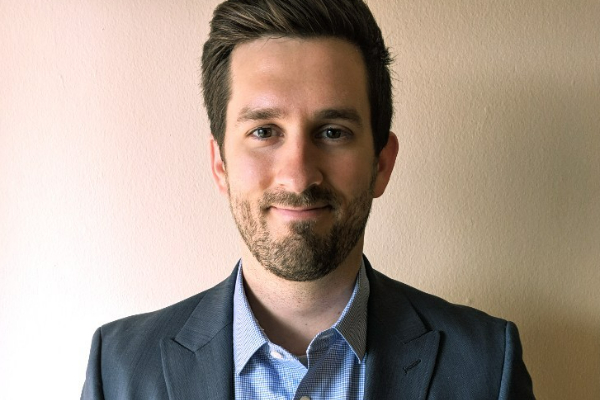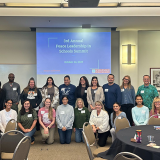
Meet New Faculty Member: Dr. Zack Maupin New Attallah Faculty Member Brings Focus on Mental Health Services and Inclusive Learning Environments
September 30, 2022
With an increase in the need and support of mental health services in public school districts, Dr. Zack Maupin brings a wide-range of knowledge to support Attallah College’s graduate programs in School Counseling and School Psychology.
Meet Dr. Zack Maupin
What is your educational background?
I received my undergraduate degree in psychology with an emphasis in child and family development from Azusa Pacific University (APU), here in Southern California. Working in different school settings during this time sparked my interest in the crossroads of education and psychology. Soon after, I returned to APU to finish my MA and Ed.S. in School Psychology. My focus throughout the program was on mental health in schools. I quickly realized I had much more to learn and rushed back to school to pursue a Ph.D. in School Psychology right here at Attallah College of Educational Studies at Chapman University.
Over the past decade you have worked in public schools supporting student mental health. Can you share more about the fields you have worked in?
During undergrad, I worked briefly in alternative special education schools in Orange County and for a year at a program in Minnesota. These programs supported students with moderate-to-severe needs related to their development, communication, and social skills. When I began studying School Psychology, I completed my practicum with La Cañada Unified School District and my internship with Glendora Unified School District.
For the past seven years I worked closely with Norwalk-La Mirada Unified School District as an Educationally Related Mental Health Services (ERMHS) School Psychologist. The role focused on providing mental health services throughout the school district and collaborating with teachers, community agencies, and alternative school placements to support our students and their families.
What is your area of research?
My research interests continue to grow and expand, but continually focus on student mental health and how to better identify and support these needs. I am interested in learning more about students with school attendance problems, and how to prevent and intervene, by improving school climate and mental health initiatives. Finding new and better methods for identifying students and understanding their mental health needs through assessment is something I am eager to continue studying and researching. Similarly, I am interested in supporting students transitioning into post-secondary opportunities, and how this process can be improved for students with different abilities.
What do you hope to share with Chapman students taking your classes?
Schools have become a de facto provider for quality mental health services. Kids spend so much time at school and their families are able to access more resources through their local school district. I am eager to integrate our students into local schools and continue to build this capacity for caring while creating top-tier mental health services.
In our Mental Health in the Schools course (CSP 517), school counseling and school psychology students team up to create a phenomenal resource page that has been growing for the past two-years. This is something I hope to continue improving and using to create opportunities for our students to expand their interests and get involved with local school districts.
Why did you choose to join Chapman University as a faculty member?
Joining this elite team of caring and inspiring individuals at Chapman University made the choice to return an easy decision. I taught courses throughout my doctorate program and spent the past year teaching part-time at the college. At Chapman University, I have been able to work on meaningful projects and conduct research that I want to continue and expand.

